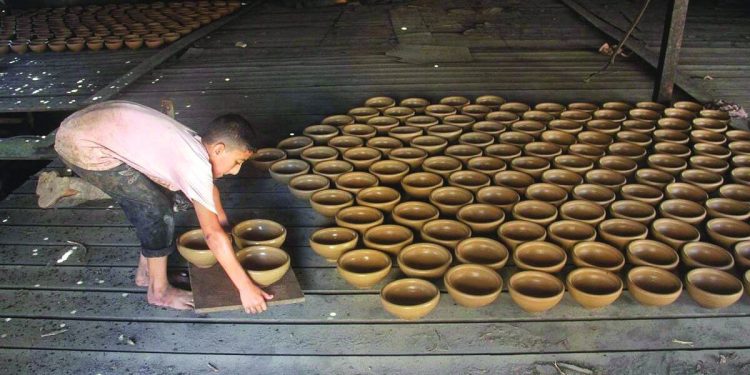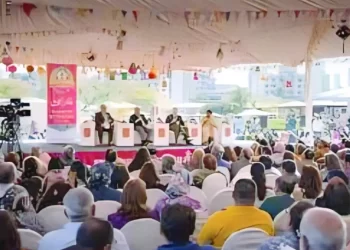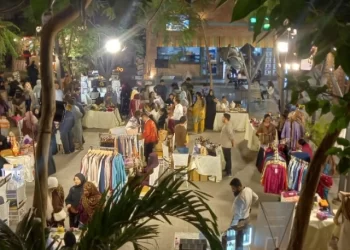Artisans step up to replace lost crockery
Traditional clay pottery is seeing a resurgence in the Gaza Strip, where Palestinians are forced to find solutions for a shortage of plates and other crockery to eat from in the territory ravaged by more than a year of war.
“There is an unprecedented demand for plates as no supplies enter the Gaza Strip,” 26-year-old potter Jafar Atallah said in the central Gaza city of Deirel Balah.
The vast majority of the Palestinian territory’s 2.4 million people have been displaced, often multiple times, by the war that began with Hamas’s attack on southern Israel on October 7, 2023.
Fleeing bombs amid Israel’s devastating retaliatory military offensive, which has destroyed large amounts of civilian infrastructure, everyday items like cups and bowls have often been lost, broken or left behind to perish.
With imports made increasingly difficult by Israeli restrictions and the dangers of delivering aid, Gazans have had to find resourceful ways to meet their needs since the war began.
Bare-bones
To keep up with demand, Atallah works non-stop, producing around 100 pieces a day, mainly bowls and cups, a stark contrast to the 1,500 units his factory in northern Gaza made before the war.
It is one of the numerous factories in Gaza to have shut down, with many destroyed during air strikes, inaccessible because of the fighting, or unable to operate because of materials and electricity shortages.
Today, Atallah works out of a bare-bones workshop set up under a thin blue plastic sheet.
He carefully shapes the clay into much-needed crockery, then leaves his terracotta creations to dry in the sun – one of the few things Gaza still has plenty of.
Each object is sold for 10 shekels, the equivalent of $2.70 – – nearly five times what it was worth before the war led to widespread shortages and sent prices soaring.
Gazans have told AFP they are struggling to find all types of basic household goods.
“After 13 months of war, I went to the market to buy plates and cutlery, and all I could find was this clay pot,” said Loraal Turk, a 40-year-old mother living in a makeshift shelter in Nuseirat, a few kilometres (miles) from Deirel Balah.
“I was forced to buy it to feed my children,” she said, noting that the pot’s price was now more than double what it was before the war.
Old ways









